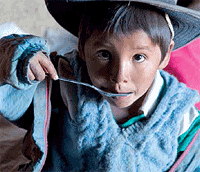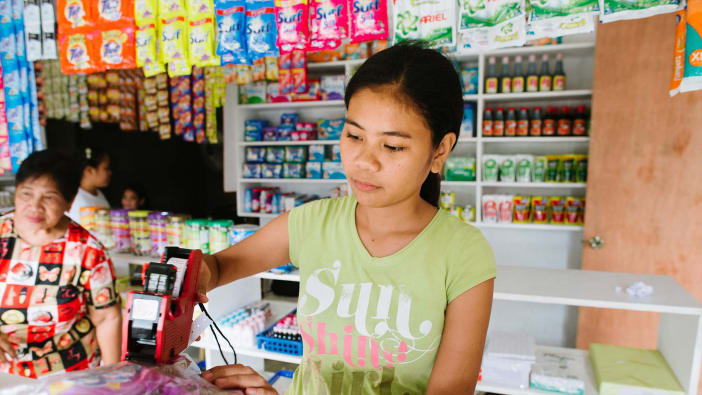People working to improve child health often focus on medical health, such as preventing and treating common childhood illnesses, and encouraging good nutrition. Physical health is very important, but a child’s mental, social and spiritual needs must also be met to ensure the full and healthy development of that child. Babies and young children need special attention because the care and attention a child receives in the first five years of life will influence a child’s whole development. People are capable of learning throughout life, but brain development is most rapid during the first few months and years.
The importance of care
Parents and other caregivers take care of children every day, but often do not realise how much they are doing, and how important it is. A child’s growth and development depend on the availability and quality of four things:
- healthcare services
- a healthy home environment
- emotional care
- healthy nutrition.
In difficult situations, where access to resources such as food or treatment is limited, good care at home is even more important to ensure the child’s survival, growth and development. Access to medical services at a local health centre is important, but what happens in the home is what really makes a difference. A health worker gives advice or a prescription, but it is the caregiver who has to obtain the necessary medicine and give it to the child each day, as well as take the child for immunisations. In the home, caregivers are responsible for creating a healthy environment by preventing accidents and teaching the child about hygiene and sanitation, such as handwashing and using a latrine. Caring for the child includes preparing and storing nutritional food, ensuring he or she receives education, and giving love and affection to the child. Children should be valued as people in their own right.
Emotional care and stimulation
About half of a child’s mental abilities will depend on the quality and consistency of social and emotional care, and opportunities for learning, that the child receives, especially in the first five years of life. Good care means:
- giving children love, affection and attention. Caregivers should hold, touch, talk to and comfort children
- protecting children from abuse, neglect and exposure to violence
- encouraging children to play, explore and learn
- responding to a child’s emerging abilities by encouraging new skills and stimulating the child by talking and playing with him or her.
This type of care does not require any resources apart from time. Good care and stimulation for pre-school children will improve their intelligence. The most important thing that a caregiver can do for a young child is to respond to what the child is trying to do – to follow the child’s lead. This means that the caregiver has to pay attention to what the child is learning to do, and help the child to take the next step. For example, if a child is beginning to make sounds, the caregiver can imitate the sounds and add some new ones. It is important to encourage all the child’s attempts, and praise the child for what he or she manages to do, not to criticise.
Healthy nutrition









